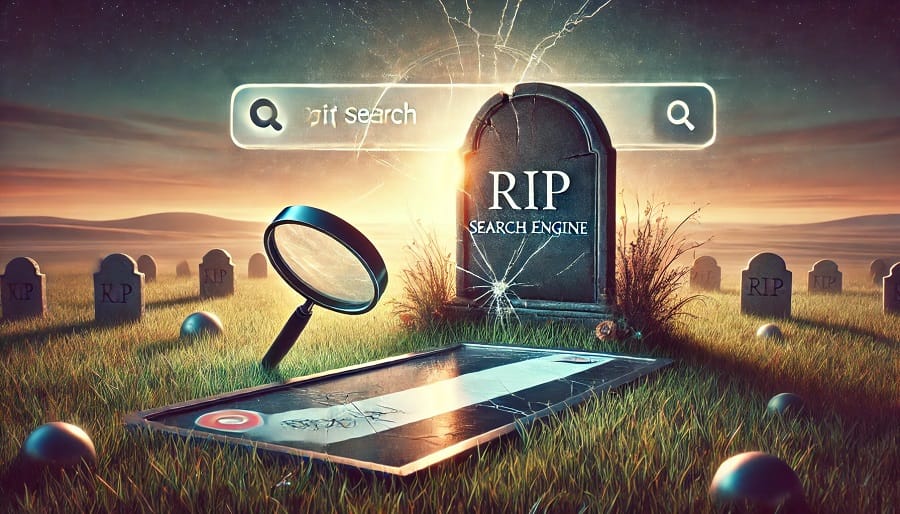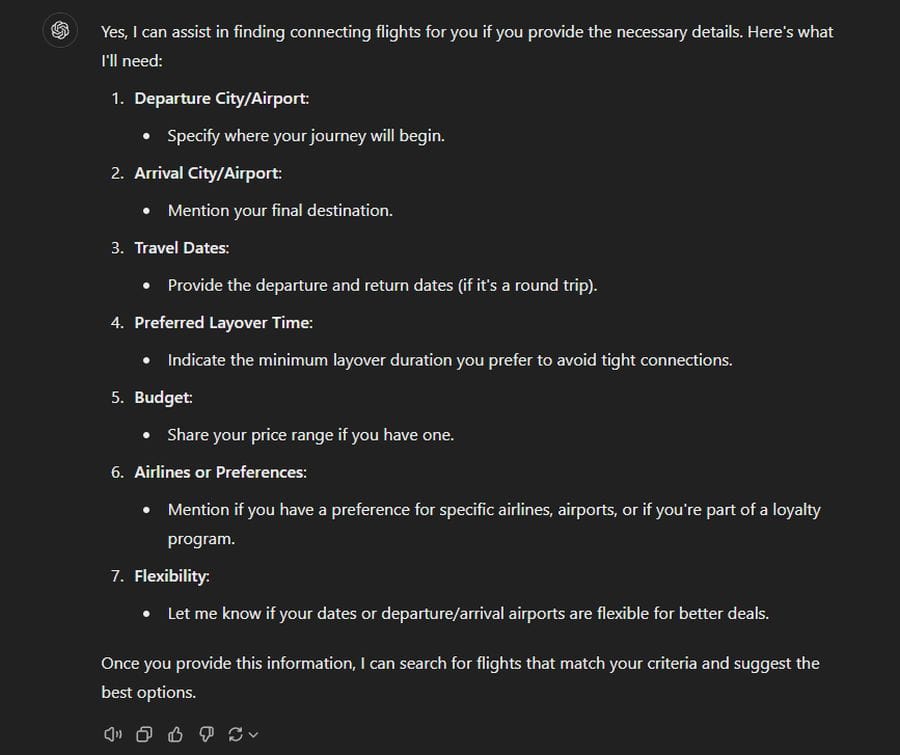The End of Search Engines?

Well, not really, but...
The line between search engines and AI chatbots has become more blurred in recent months as everyday users start using tools like OpenAI's ChatGPT. Just last week, I started being offered a Chrome browser ChatGPT plugin while using ChatGPT. Personally, I do development work and rarely use browser plugins but I got a hint of where this was heading. If you're a software developer like me, or an engineer, you're probably using a mix of both search engines and AI chatbot without really thinking about it.
As a software developer, I know the limitations of AI and I'm pretty good at prompt engineering to get the best from it. I will often use AI to help me think out the architecture of a project, then get it to point out some pitfalls that could easily escape my attention. Or I may ask for some specific C# syntax in the form of a very focused prompt. But you have to think like a regular, non-technical user to get a feel for how these tools will be used in the future. As human beings, we are creatures of habit. When the everage person gets past their fear of change and takes the plunge, I no longer see them relying on search engines as their primary source of information. This is a big deal.
For example, have you ever experienced the frustration of booking an air trip and trying to organize the connnecting flights with enough layover time? More than once I found myself setting olympic track records getting from one end of Denver airport to the other. I asked ChatGPT if it could help me with this, and you can see its response below. It also made me aware of specific online resources that I would not even have thought of, such as Airwander and Cleverlayover.

OpenAI, the company behind ChatGPT, is no doubt well aware of all the above and reportedly have plans to build their own browser to compete with Google. This won't happen anytime soon, but they were serious enough to hire on two former Google engineers who were instrumental in the creation of Chrome, Ben Goodger and Darin Fisher. I don't want to give a false impression here - right now most other players such as Microsoft are integrating AI into their products, as with CoPilot. However, Google currently have two thirds of the browser marketplace and now the DOJ is seeking to force Google to sell Chrome and potentially license some of its search data to rivals. If you were OpenAI, this is an opportunity too good to miss.
I personally believe that it's not a matter of if, but when OpenAI takes advantage of this situation. That said, it's no trivial undertaking to create a new AI browser. And OpenAI has other hurdles to jump if it wants to get there, namely addressing its miserable UI experience. It has obvious issues with performance and no thought whatsoever has gone into the existing front-end user experience.
Such hurdles can be viewed as opportunities. If you're working with ChatGPT and are reading this, please consider the following. In our vain quest to attain knowledge over the last 30 years, we have been awash with data with no real means of organizing it. The way we organize our knowledge resources and note taking are critical going forward. OpenAI could do worse than integrating the Zettelkasten methodology coupled with Obsidian tooling into its new ChatGPT browser. Now that would truly be a killer app!
Teaser of Possible Future Topics
- Hacking Dalle to generate celeb pics using police facial composite artist techniques
- AI as a threat to atists, writers, musicans, songwriters, actors?
- Geopolitics/Military: winner takes all when full Generative AI is reached?
Member discussion